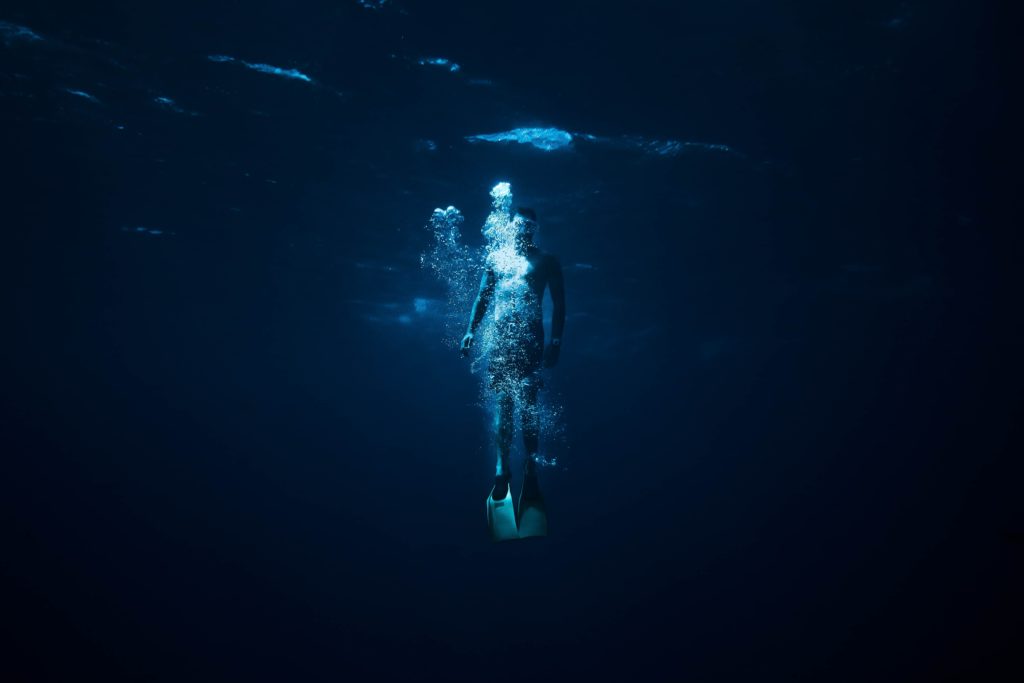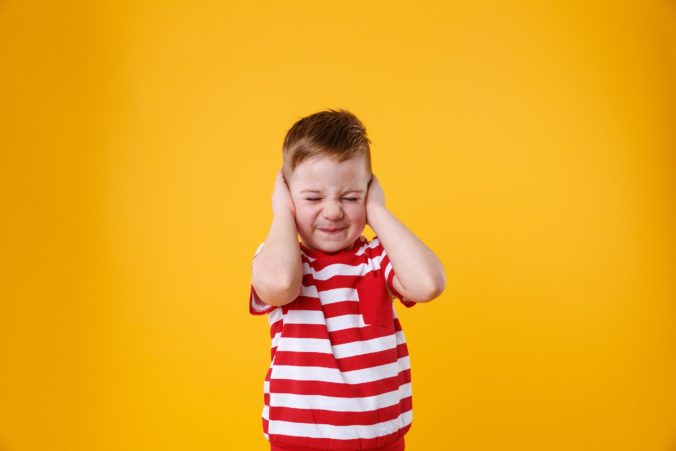Find out more about the most common causes and symptoms of ear barotrauma, which is one of the most common ear ailments during the summer months and can cause travellers and divers a great deal of discomfort.
What is ear barotrauma?
Ear barotrauma, also referred to as barotitis or airplane ear, is a condition caused by differences in pressure between the middle and outer ear that can damage the eardrum. While the pressure in the middle ear normally matches external air pressure, abrupt changes in atmospheric pressure can cause a blocked feeling in the ears.
During take-off or landing on an airplane, the change in altitude affects the pressure in the air, and the eustachian tubes, which open and close to regulate this pressure, may be unable to react swiftly enough. The air inside the middle ear is compressed, which creates a vacuum that stretches the eardrum and sucks it inwards, causing pain. This can also happen to scuba divers if they descend or ascend too quickly in the water.

According to a study published by Oi2, which was featured on the health and medical news website Infosalus, up to 83% people in Spain suffer ear barotrauma in the summer, with train or airplane journeys causing 28% of these cases and swimming in the sea causing another 17%.
Another possible cause of ear barotrauma may be a blockage of the eustachian tube (congenital or otherwise), nasal congestion or inflammation of the throat.
Symptoms of ear barotrauma
Some of the most common symptoms of ear barotrauma are:
- a blocked feeling in the ear
- slight loss of hearing
- intense pressure
- pain and discomfort.
Severe or prolonged ear barotrauma can lead to more serious symptoms such as hearing loss, intense ear pain, nosebleeds or vertigo.

Avoiding ear barotrauma during the summer
During the summer months, our ears are more susceptible to barotrauma: water sports such as scuba diving and plane, train and car travel are some of the most frequent causes of the pressure changes that lead to the condition.

Recommended techniques for preventing ear barotrauma include chewing gum, yawning or carrying out the Valsalva manoeuvre, which involves closing the glottis, pinching the nose shut and exhaling forcefully. This helps to push air into the eustachian tubes and counterbalance the negative air pressure in the middle ear.
Treating ear barotrauma
Two treatments can be used to relieve ear barotrauma if none of the techniques above improve the situation. On the one hand, certain medicines, such as nasal decongestants, antihistamines and steroid treatments may be helpful and can be taken in combination with antibiotics if there is a risk of infection due to a blockage in the eustachian tubes. On the other hand, tympanostomy or pressure equalization (PE) tubes can be inserted in the eardrum to drain the ear if none of the solutions above are successful in improving the symptoms.
We recommend you take good care of your ears and be aware of the risks to your hearing health in summer. Have you ever had airplane ear or suffered ear barotrauma? Leave a comment below!

I’m not that much of an internet reader to be honest but your blogs really nice, keep it up! I’ll go ahead and bookmark your website to come back down the road.
Thank you so much for your nice words, we really appreciate your comment.
i like this article, it has a lot of info i need to know, thanks for sharing
Thank you so much for your comment, really appreciate it! 🙂
Very good Article causes of ear pain .it’s really informative information for the Audience.
Thank you!